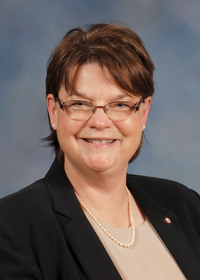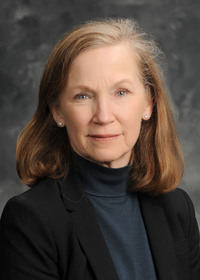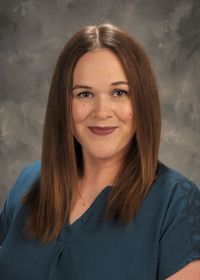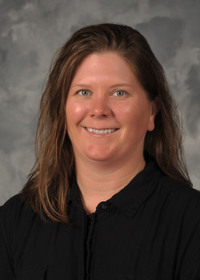Information Possibly Outdated
The information presented on this page was originally released on June 19, 2008. It may not be outdated, but please search our site for more current information. If you plan to quote or reference this information in a publication, please check with the Extension specialist or author before proceeding.
Males make headway in traditional female field
MISSISSIPPI STATE -- A female-dominated profession is getting some competition from men who have only begun to make their presence known in the scientific field of dietetics.
“We're starting to see more students who are interested in the health-care area, and that begins with nutrition,” said Benjy Mikel, head of Mississippi State University's Department of Food Science, Nutrition and Health Promotion. “We're seeing some males enter this field.”
Mikel was speaking of the profession of registered dietitians, which this MSU department offers as a major along with food science and health promotion in the College of Agriculture and Life Sciences. A registered dietitian is nationally certified after earning a four-year degree, completing an internship and passing the national boards.
“Traditional work for a registered dietitian is clinical dietetics such as nursing homes and hospitals, but others go into food service and work in school lunch programs,” Mikel said. “Today, many are becoming consulting dietitians or entering the food processing industry.”
MSU has 85 undergraduates and 85 graduate students in the Department of Food Science, Nutrition and Health Promotion. Graduates have a very high placement rate and an excellent success rate passing the registered dietitian certification examination.
“It's a given that you will have tremendous job opportunities,” Mikel said. “From a career standpoint, there is a great variety of positions out there for registered dietitians, and men will have as many options or more than women.”
Brent Fountain, assistant professor and human nutrition specialist with the MSU Extension Service, said only 3 percent of the dietetics profession is male, a number that has held fairly steady in recent years after a slight trend up about a decade ago.
“The founders of dietetics were females, and even though a lot of nutritionists were male, they probably were classified in different fields like chemistry or biology, but not dietetics,” Fountain said.
He said society has attached a stigma to any profession that deals with food, and many people automatically think of dietetics and nutrition as only food service.
“While that is one portion of it, it's not the entire field,” he said.
Fountain said the nutrition and food science curriculua are highly scientific, and many people pursue these degrees to prepare for medical school. Job opportunities for registered dietitians are growing, with one area being the research and development of new products.
“As consumer attitudes have trended toward low-fat and reduced-calorie products, dietitians have been working with traditional food science people to develop products that are appealing in taste and nutrition,” he said.
Another fast-growing field for registered dietitians is sports nutrition.
“That is an area where men have been able to make an impact,” Fountain said. “There are many women in this field, but there is a big attraction for men to be in sports nutrition.”
Nutrigenomics, the study of how individual nutrients affect individual genes, is a growing field, as is the study of how the human body benefits from phytonutrients.
Despite the wide-ranging career opportunities, the ratio of women to men in the field has stayed disproportionate. Some progress is being made to increase male participation in this field.
Fountain was elected as the 2008 president of the Mississippi Dietetic Association, a group of about 600 members. This organization is an affiliate of the American Dietetic Association, which this year elected its first male president. The MSU Student Dietetic Association also has its first male president in Adam Woodyard.
“Dietetics is progressive and there are so many career options out there,” Woodyard said. “Due to the obesity epidemic, nutrition is becoming more important to everyone. I feel compelled to educate the community in making healthy food choices and fueling America's love affair with food.”
Woodyard, 23, is a senior food science, nutrition and health promotion major from Tupelo. He is earning a concentration in food and nutrition with a minor in microbiology.
“I love how nutrition ties into athletic performance, and I feel it is often overlooked,” Woodyard said. “I would like to go into sports nutrition and weight management. I also am very interested in diabetes education and clinical nutrition.”
He said his membership in the MSU Student Dietetic Association has been an essential part of his nutrition education, allowing him to apply lectures and book knowledge to real-life situations. The association also allows future dietitians to know each other better and to meet the communities they will eventually serve.






